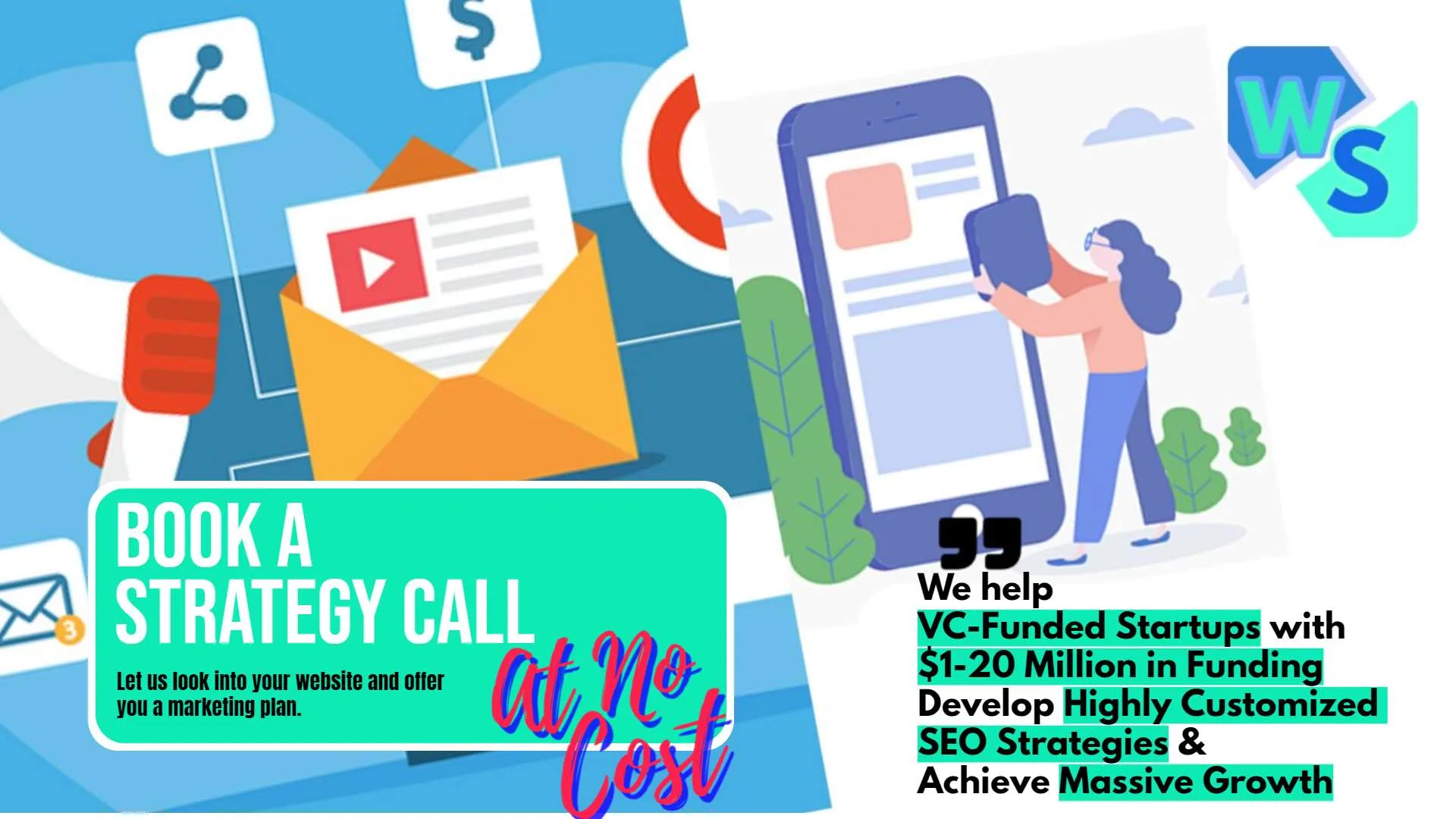In the world of digital marketing, understanding how your content performs is crucial. It helps you know what works, what doesn’t, and how to improve. Traditionally, tracking content performance involved looking at basic metrics like page views and bounce rates. But with the advent of artificial intelligence (AI), the game has changed. AI brings deeper insights, more accurate predictions, and a better understanding of your audience. In this article, we’ll dive into how AI can enhance your content analytics and help you measure performance more effectively.
What Are Performance Metrics in Content Analytics?
Going Beyond Basic Metrics
For startup founders, understanding performance metrics in content analytics goes far beyond just tracking page views or bounce rates. These basic metrics offer a snapshot of user engagement but lack the depth needed for strategic decision-making. To truly leverage the power of content analytics, it’s essential to dive deeper into more comprehensive and actionable metrics.
User Engagement Metrics
User engagement metrics provide a more nuanced view of how your audience interacts with your content. These include time on page, scroll depth, and interaction rates with various content elements such as videos, links, and forms. By analyzing these metrics, you can understand which parts of your content hold the audience’s attention and which areas might need improvement.
For instance, if a blog post has a high average time on page but low scroll depth, it suggests that users are not reading through to the end. This could indicate that the content loses relevance or becomes less engaging as it progresses. Addressing such issues can help in retaining reader interest and improving overall engagement.
Conversion Metrics
Conversion metrics are critical for measuring the effectiveness of your content in driving business goals. These metrics track actions such as form submissions, downloads, purchases, and sign-ups. For startup founders, it’s crucial to tie these conversions back to specific pieces of content to understand what’s driving your audience to take action.
By using AI to analyze conversion paths, you can identify which content types and topics are most effective at converting visitors. This allows you to refine your content strategy to focus more on what works, ultimately increasing your conversion rates and ROI.
Retention and Loyalty Metrics
Retention and loyalty metrics are essential for understanding how well your content retains users over time. Metrics like returning visitor rate, session frequency, and content stickiness indicate how often users come back and engage with your content. High retention rates suggest that your content is valuable and relevant to your audience, fostering a loyal readership.
AI can help identify patterns in user behavior that lead to higher retention. For example, it might reveal that users who engage with a particular type of content are more likely to return. Armed with this knowledge, you can create more of the content that keeps your audience coming back, thereby building a loyal user base.
Content Performance Across Channels
Content performance metrics across different channels help you understand where your audience is most engaged. Analyzing metrics from social media, email campaigns, and other distribution channels can provide insights into which platforms are most effective for reaching your audience.
AI tools can aggregate data from various channels, providing a comprehensive view of content performance. This enables you to allocate resources more effectively, focusing on the channels that drive the most engagement and conversions. For example, if your content performs exceptionally well on LinkedIn but not on Twitter, you might decide to prioritize LinkedIn for your content distribution efforts.
Sentiment Analysis
Sentiment analysis is a powerful metric that goes beyond quantitative data to understand the qualitative aspects of user interactions. By analyzing comments, reviews, and social media mentions, AI can gauge the sentiment behind user feedback. This helps you understand not just how many people are engaging with your content, but also how they feel about it.
Positive sentiment can indicate that your content resonates well with your audience, while negative sentiment might highlight areas for improvement. By addressing negative feedback and reinforcing positive experiences, you can enhance your content strategy and improve overall user satisfaction.
Brand Awareness and Reach
Metrics related to brand awareness and reach measure how far your content travels and how it impacts brand perception. These include impressions, share rates, and mentions across different platforms. Understanding these metrics helps you assess the effectiveness of your content in increasing brand visibility and recognition.
AI can track and analyze brand mentions and shares in real-time, providing insights into how your content contributes to overall brand awareness. By identifying the types of content that generate the most reach and positive brand mentions, you can refine your strategy to amplify your brand’s presence in the market.
Content Effectiveness Over Time
Analyzing content effectiveness over time is crucial for understanding long-term trends and the lasting impact of your content. Metrics such as evergreen content performance and content decay rate provide insights into how content continues to perform long after its initial publication.
AI tools can help identify which content remains relevant and continues to attract traffic and engagement over time. This allows you to focus on creating more evergreen content that delivers long-term value, as well as updating or repurposing content that shows signs of decay.
Strategic Implementation of Metrics

For startup founders, the strategic implementation of these advanced performance metrics is key to maximizing the impact of your content. Start by setting clear, actionable goals for each metric. For example, if your goal is to increase user engagement, focus on optimizing content based on scroll depth and interaction rates.
Regularly review and analyze your metrics to identify trends and areas for improvement. Use AI to automate this process, providing real-time insights and recommendations. By continuously refining your content strategy based on data-driven insights, you can ensure that your content remains effective and aligned with your business objectives.
Integrating Metrics into Decision-Making
To truly leverage the power of content analytics, it’s essential to integrate these metrics into your decision-making processes. Use insights from your metrics to inform content creation, distribution, and optimization strategies. Share these insights with your team to ensure that everyone is aligned and working towards the same goals.
For example, if your metrics indicate that video content performs exceptionally well in driving conversions, allocate more resources to video production and promotion. Similarly, if sentiment analysis reveals that certain topics resonate more with your audience, focus on creating more content around those themes.
How AI Enhances Content Analytics
Personalized Content Recommendations
One of the most powerful ways AI enhances content analytics is through personalized content recommendations. AI algorithms can analyze user behavior, such as browsing history, past interactions, and preferences, to suggest content that is most relevant to each individual.
For startup founders, this means you can keep your audience engaged by delivering personalized experiences that cater to their specific interests and needs. This not only boosts user engagement but also increases the likelihood of conversions and long-term loyalty.
For instance, an AI system can track which articles or videos a user has interacted with and then recommend similar content. This keeps users on your site longer, exploring more of your offerings, and provides a tailored experience that can lead to higher satisfaction and retention rates.

As the founder and CEO of Premier Staff, I’ve harnessed the power of AI content analytics to revolutionize our digital presence in the luxury event staffing world.
Our custom AI platform delves deep into engagement metrics, unraveling the DNA of successful content. This insight has dramatically boosted our audience’s interaction with our brand storytelling, particularly for our high-profile collaborations with clients like Ferrari and Louis Vuitton.
The AI’s ability to measure nuanced reader behavior, such as scroll depth and time spent on articles, has been eye-opening. We’ve fine-tuned our content structure, creating pieces that truly resonate with our audience of event professionals and luxury brands.
Perhaps most exciting has been the real-time adaptation capability during live events. At a recent Formula One activation, we pivoted our content strategy on the fly based on AI recommendations, capturing the excitement of the moment and amplifying our social media presence.
Our AI-driven approach to headline crafting and visual selection has sharpened our content’s appeal, significantly expanding our reach in the competitive luxury event market.
While I can’t disclose specific figures, I can say that this AI-powered content strategy has been instrumental in elevating Premier Staff from a local player to a nationally recognized leader in event staffing.
This journey underscores how AI can transform a startup’s digital strategy, even in niche B2B sectors, by providing deep, actionable insights into audience preferences and behavior.

In today’s competitive digital landscape, companies like Ivory & Ebony took benefit of AI analytics platforms to refine their content strategies. By focusing on metrics such as engagement rates, scroll depth, and real-time insights, the company enhanced its performance of the company and decided to shift its market from hydrophobic t-shirts to sterling silver moissanite jewelry, attracting a larger and more engaged customer base.
For example, by tracking engagement rates on product pages and blog posts related to their hydrophobic t-shirts, Ivory & Ebony can identify which types of content, such as videos showcasing the shirt’s water-repellent properties, generated interest but not sales.
This forced the brand to focus on analyzing the insights and market situation which resulted in the introduction of moissanite jewelry that ultimately boosted their conversions. Similarly, real-time insights can help Ivory & Ebony adapt their moissanite jewelry campaigns dynamically.
If a particular post gains traction, the team can amplify it, ensuring the most popular designs are strategically pushed during peak shopping times. If thought reversely, the designs that get good likes and engagement are entitled as popular designs and show that people are interested in that type of creation.
Additionally, by analyzing scroll depth data, the company determines how far users read through product descriptions. This allows them to adjust the page layout to ensure that key selling points for moissanite jewelry are placed in prime positions, increasing the chances of converting visitors into customers.
Finally, measuring social media engagement rates for seasonal campaigns, such as those centered around summer wear or holiday jewelry, would help the brand streamline its approach to maximize audience interaction and drive sales.
By integrating AI analytics into its digital strategy, Ivory & Ebony can continually improve its marketing efforts and achieve greater success in the competitive marketplace.

As the founder of StudyX, I understand deeply that in the field of AI education, a precise content strategy is crucial for attracting and retaining users.
StudyX. AI hosts a wealth of educational resources and learning tools. User engagement rates directly reflect the attractiveness and practicality of these resources to them. To boost engagement, we use AI content analytics platform to conduct thorough analytics platforms of user interactions with our platform’s content.
Furthermore, we have optimized the user interface and interaction design to improve the fluency and enjoyment of using our platform. For instance, we have simplified search and navigation functions, enabling users to find the content they need more quickly.
Scroll depth is a crucial metric for measuring the depth of user engagement with content. On our platform, we utilize the AI content analytics platform to conduct detailed analyses of user scrolling behavior.
We have discovered that users often browse a portion of the content on a page before leaving. To attract users to read further, we have optimized the layout and design of our content.
For example, we place important information and highlights in prominent positions on the page, guiding users to continue scrolling and reading. At the same time, we incorporate animations and interactive elements to increase the fun and interactivity of the content, making users more willing to delve deeper and learn.
Real-time insights provide us with the ability to understand user behavior and needs instantly. We utilize the Al content analytics platform to gain user behavior data in real-time, allowing us to respond to market changes and user demands quickly.
For instance, we have noticed that users are particularly interested in a specific AI model during a specific time period. In response, we immediately adjusted our content strategy by adding more content related to that topic to meet user needs.
This real-time adjustment and optimization not only improves content performance and user satisfaction but also enhances our sensitivity and responsiveness to market changes.

As CEO of Team Genius Marketing, an AI-focused digital marketing agency, I have helped many startups leverage AI to optimize their content strategy and achieve remarkable growth.
One client, a home cleaning service, used our AI tools to gain real-time insights into their target audience and identify trending topics.
We crafted interactive content addressing their needs, and it drove 50% of their monthly leads.
By optimizing two underperforming content sections, their conversion rates rose 24% the next month.
Another client, a landscaping company, gained a competitive edge using AI to publish relevant content within a day. Their responsiveness led to 30% more traffic and revenue growth.
For startups, AI transforms content creation. The data-driven insights into your audience allow you to craft content that resonates.
The efficiencies will accelerate growth. AI is the future of content, and startups leveraging it will gain a clear competitive advantage.

As the founder of Raincross, a digital marketing agency, I have seen how AI and content analytics have transformed our content strategy.
By using platforms that provide real-time metrics on engagement, scroll depth and more, we have been able to optimize our content to better meet audience needs.
For example, after analyzing the performance of one of our pillar content pieces, we found that a specific section was not resonating with readers.
We reworked that section based on the insights, and the next month the content piece drove 40% more traffic and conversions.
AI and analytics have also allowed us to tap into trending topics and interests in real time. We can see exactly what content is spurring the most interest, and then produce relevant content within hours rather than days or weeks.
This kind of agility and responsiveness has been key to staying ahead of competitors.
The future of content creation is data-driven. For any startup, I highly recommend investing in AI and analytics platforms that provide a clear window into audience interests and a true competitive advantage.
The insights and efficiencies gained will transform your content strategy and business.

As the founder of Hook’d IT up, a digital marketing agency, I have seen how AI and content analytics have transformed our content strategy.
By analyzing metrics on engagement, scroll depth, and more, we have optimized content to better meet audience needs.
For example, after analyzing a pillar content piece, we found a section not resonating. We reworked it based on insights and drove 40% more traffic and conversions.
AI and analytics have also allowed us to tap trending topics fast. We see what’s spurring interest and produce relevant content within hours, not days or weeks. This agility and responsiveness has kept us ahead of competitors.
The future of content is data-driven. For startups, I recommend AI and analytics platforms providing insights into audience interests and competitive advantages.
The efficiencies gained will transform your content strategy and business.

AI content analytics has been a huge help in content personalization and getting us engagement + traffic from regions that we particularly want to get visitors from.
Through analytics platforms, we’re specifically getting AI insights about which keywords to target, how long our competitor’s article is, and how we can create a better content piece, in terms of value.
We’re majorly supplying in Michigan state and I’m using AI’s insights for personalizing the content with more Michigan slang so that local people can relate with our content while reading our blogs and it also helps us in establishing trust.
Engagement rates with our content are directly related to how much time a reader spends on our website and it gives us insights about which particular part or section of our blog, is better than other sections that might need some improvement.
With AI content tools, we can even perform A/B testing to check which headlines, with SEO-optimized subheads are performing well.
Through relevant KPIs, we can create a sort of checklist to figure out how we can enhance our content and hit all the tick marks.

Producing material that sparks an adventure is vital; yet, ensuring it speaks to our audience is an art unto itself. In this sense, platforms driven by artificial intelligence for content analytics prove helpful.
Using these tools will help us to eliminate guessing from our content strategy by refining our messaging depending on real-world data such engagement rates, scroll depth, and real-time insights.
For example, it was challenging to determine exactly how well our blog entries or social media posts performed before applying artificial intelligence analytics. With tools like ContentSquare and Hotjar, we can track how far down our adventure-packed blogs or thorough travel guides users search.
Here we can identify where our text fails to captivate readers—even more importantly—where it attracts in others. Studying engagement patterns helps us to change our strategy depending on the elements attracting the most attention.
Thanks to insights, we can instantly alter live content to maximize its success. After we made some tweaks, our trip planning guide observed a 25% increase in engagement rates. Readers also spent more time on the sections that held most significance to them.

As the founder of Refresh Digital Strategy, a Webflow website development and digital marketing agency, I have leveraged AI and analytics to optimize our clients’ content strategies with great success.
For example, after analyzing a law firm’s blog posts, we found their thought leadership content was barely resonating. We repositioned their content to focus on issues important to their target customers using AI to identify trending topics. The result was a 200% increase in traffic and leads the next month.
We tap into trending interests in real time using AI. We see exactly what content spurs interest and produce customized content for clients within days. This agility gives us a competitive advantage.
Analytics show us what engages our clients’ audiences. We optimize content and strategy based on scroll depth, time on page, social shares, and more. The insights allow us to transform content and exceed client goals.
For startups, AI and analytics are crucial. The insights into your audience’s interests provide a true competitive edge.
The efficiencies will transform your content strategy and business. With the right tools and experrise, the possibilities are endless.

Startups in many different sectors have used AI content analytics tools to improve their content strategies, with rather outstanding results.
In the health sector, some business blogs have employed AI-driven content analytics to examine engagement metrics including click-through rates, scroll depth, and user interaction.
Knowing which material connects most to readers allows you to modify your approach to concentrate on subjects causing the most interest.
With use of these insights, smaller businesses are able to enhance keyword targeting, content length, and messaging quality, improving both engagement rates and conversions.
This allows them to expand their audience easily and compete with more well-known companies.
Another fantastic approach is to test several content forms across different marketing channels using real-time information driven by artificial intelligence.
Tracking scroll depth and time spent on specific pages, you can find which types of content receive the most engagement and modify your content calendar.
By concentrating efforts on what would be most effective, these measures not only raise user engagement but also the general content ROI.

Crimson Hexagon, which was actually a social-data analysis platform, engaged in AI content analytics with an aim of improving the orientation of its content marketing activities.
They focused on audience engagement and monitored social sentiment across many platforms and metrics in order to figure out what kinds and what subjects of contents are the most effective in the market.
Metrics: They reported that they exploited evaluations of social activity and awareness in marketing and were able to make instant corrections to the content strategy leading to improvement audience interaction with the content by thirty percent.
Narrative Science
Core Content Tweets: Narrative Science, a company focused on creating an AI unsupervised storytelling sphere, adopted content analytics to strategically edit blog posts and case studies. They applied website analytic tools powered by artificial intelligence to gauge engagement by observing scrolling, clicking, and other usage parameters.
Outcome: It was established that long data-rich articles yield better results than short presentations hence engagement rates were up by 45%. They were able to create extensive materials the experience-based targets enhancing their audience’s content fulfilling the requirements.
HubSpot
They applied the native AI tools of HubSpot for self-analysis and tracking the audience’s engagement, time on the blog content and the depth of scrolling on the pages provided by the corporate blog.
They reported that due to the introduction of AI, they were able to conduct better analysis on the topics and formats that led to more engagement and conversions.
Harvard Business Case Studies enhance budding entrepreneurs in a literary manner as noted in the case of HubSpot which reported and increase in reader engagement of up to 35% and refined their focus toward content with high scroll depth and completion rates, having adjusted their editorial calendar since the baseline.
Key Benefits:
Heuristic Value: Startups were able to make inline content changes to the content, hence ensuring engagement was secured on an ongoing basis.
Scroll Depth Metrics: Enabled companies to see drop off areas in user interest enabling them to adjust content and CTA positions.
Predictive Analytics: Predictions on which topics and formats are more likely to succeed made by AI 5 platforms helped in the better allocation of resources.

Content Calendar and Idea Formulation:
We’ve leveraged AI to brainstorm and organize content calendars for social media, newsletters, and email marketing campaigns. AI tools help generate trending topic ideas, hashtags, and video titles that align with our brand ethos—GOD GYM GRIND—and address our audience’s aspirations. These tools provide real-time data on which content formats and topics are currently driving engagement, allowing us to align our posts with consumer interest.
Engagement Optimization:
Metrics such as engagement rates, comment volumes, and scroll depth have informed our content strategy. We use AI to analyze which types of posts generate the most interaction—whether it’s motivational videos, fitness tips, or faith-based messages.
As a result, we’ve increased our follower count by over 145% on Instagram and seen a marked rise in engagement, with more likes, comments, and shares on our posts. Our content has also achieved more social media visibility, helping us connect with a wider community of like-minded individuals.
Tailoring Content to Customer Avatars:
AI has been essential in helping us better understand our target audience. By diving into customer data and analyzing patterns, we’ve developed personalized content that speaks directly to our audience’s dream outcomes—whether it’s fitness goals, spiritual alignment, or building resilience.
For instance, by refining our messaging based on these insights, we’ve been able to solve key customer pain points and increase the perceived value of our products, leading to stronger customer loyalty.
Email Marketing and Newsletters:
AI has also streamlined our email marketing process, from topic generation to delivery. With AI’s assistance, we can predict optimal email subjects and newsletter topics that capture attention and drive higher open rates.
Our AI-powered email marketing calendar aligns our campaigns with real-time analytics, so we know when and how to engage our audience most effectively, whether it’s promoting new products, announcing community events, or offering fitness challenges.
Real-Time Insights for Performance Tuning:
AI platforms allow us to make data-driven decisions. We track real-time metrics like scroll depth, click-through rates, and content consumption patterns to refine future content. This enables us to deliver high-performing posts consistently and tune our strategy to what works best, saving time and maximizing impact.
By utilizing AI-driven insights and content generation tools, G3X Fitness has been able to enhance our content strategy, creating posts and campaigns that not only resonate with our community but also drive tangible business results.
Our data-backed approach has not only improved engagement but also allowed us to grow our social media presence and community, further embedding G3X as a trusted, value-driven brand.

When I first introduced AI-driven tools into our process, I wasn’t just looking to improve content — I wanted to understand how people were truly interacting with it.
AI analytics platforms, like Hotjar and ContentSquare, gave us insights into metrics that went far beyond page views. Scroll depth, engagement rates, and real-time behavior tracking showed us where we were inspiring readers and, just as importantly, where we were losing them.
One of the most interesting insights was discovering that users were dropping off at key moments. For example, we found that even our most engaged readers weren’t scrolling past a certain point in some of our longer articles.
This led to a major rethink of our content structure. After making our articles more concise, repositioning CTAs, and reformatting headers for clarity, engagement shot up more than 30%. It was the kind of insight you can only get with AI—deep, actionable, and immediate.
Even more groundbreaking for us was the effectiveness of AI for real-time content optimization. As soon as I saw a pattern in user engagement, I could adjust our content strategy on the fly.
For instance, by analyzing when users were most active on the site, we began publishing our most important content during peak times.

At Rosedwell Machinery, we recently adopted an AI-driven content analytics platform to refine how we engage with our customers through our online content.
I think the biggest game-changer for us has been AI’s ability to analyze real-time metrics like scroll depth and engagement rates.
By understanding exactly how long users spend on each page, we’ve been able to pinpoint which types of content resonate the most.
For example, after analyzing user interaction data, we noticed that technical guides and behind-the-scenes videos led to much higher engagement than standard blog posts.
So, we shifted our strategy to produce more of this type of content. AI also helped us spot when engagement rates started to drop, allowing us to tweak headlines, structure, and visuals on underperforming pieces to boost interaction.
Another valuable insight has been tracking user behavior in real-time. We use AI to see which content pieces result in higher lead conversions.
By integrating these insights into our workflow, we’ve increased conversion rates by nearly 20% over the past six months.
Enhancing Content Creation with AI Insights
AI can significantly enhance the content creation process by providing data-driven insights into what types of content resonate most with your audience. By analyzing metrics such as engagement rates, shares, and comments, AI can identify the topics, formats, and styles that are most effective. For startup founders, this means you can focus your content creation efforts on producing high-impact pieces that are more likely to succeed.
AI can also assist in identifying content gaps—areas where there is high demand but low supply of information. By filling these gaps, you can position your brand as a leader in your industry and attract a larger audience. Furthermore, AI-driven tools can help optimize content for SEO by suggesting relevant keywords, improving readability, and ensuring that your content meets the latest search engine algorithms.
Automating Performance Reporting
One of the key advantages of using AI in content analytics is the automation of performance reporting. Traditional reporting methods can be time-consuming and prone to errors, but AI can streamline this process by automatically collecting, analyzing, and visualizing data. For startup founders, this means you can get real-time insights into your content performance without spending hours on manual data analysis.
AI-powered dashboards can provide a comprehensive view of key metrics, such as traffic sources, engagement levels, and conversion rates. These dashboards can be customized to highlight the metrics that matter most to your business, allowing you to quickly assess the effectiveness of your content strategy and make data-driven decisions.
Predictive Analytics for Future Planning
Predictive analytics is another area where AI excels in enhancing content analytics. By analyzing historical data and identifying trends, AI can predict future performance and help you plan your content strategy more effectively. For startup founders, this means you can anticipate what types of content will be popular in the future and adjust your plans accordingly.
For example, if predictive analytics indicates that a particular topic is likely to gain traction in the coming months, you can start creating content around that topic ahead of time. This proactive approach allows you to stay ahead of trends and ensure that your content remains relevant and timely.
Optimizing Distribution Strategies
AI can also optimize your content distribution strategies by analyzing which channels and times are most effective for reaching your audience. By understanding the preferences and behaviors of your audience, AI can suggest the best times to publish content and the most effective platforms to use. For startup founders, this means you can maximize the reach and impact of your content by distributing it when and where it’s most likely to be seen.
For instance, AI can analyze social media engagement patterns to determine the best times to post on different platforms. It can also identify which channels drive the most traffic and conversions, allowing you to focus your efforts on the most effective distribution strategies.
Improving Customer Insights
AI enhances content analytics by providing deeper customer insights. By analyzing data from various sources, including social media, website interactions, and email campaigns, AI can create detailed customer profiles. For startup founders, this means you can gain a better understanding of your audience’s preferences, behaviors, and pain points.
These insights can inform your content strategy, helping you create more relevant and engaging content. For example, if AI analysis reveals that a significant portion of your audience is interested in a specific topic, you can produce more content around that subject to meet their needs. Additionally, AI can help identify potential customer segments that you may not have considered, allowing you to expand your reach and target new audiences.
Enhancing Engagement with Chatbots
AI-powered chatbots can enhance user engagement by providing real-time assistance and personalized interactions. Chatbots can answer common questions, recommend content, and guide users through your website, creating a more interactive and engaging experience. For startup founders, implementing chatbots can help improve user satisfaction and retention.
Chatbots can also collect valuable data on user interactions, providing insights into common queries and pain points. This information can be used to improve your content and address any issues that users frequently encounter. By offering immediate support and personalized recommendations, chatbots can enhance the overall user experience and drive higher engagement.
Ensuring Content Relevance with Real-Time Analytics
Real-time analytics provided by AI can ensure that your content remains relevant and engaging. By continuously monitoring user interactions and feedback, AI can identify which content is performing well and which is not. For startup founders, this means you can quickly adapt your content strategy based on real-time insights.
If a piece of content is underperforming, AI can suggest adjustments, such as changing the headline, updating the content, or promoting it on different channels. Conversely, if a piece of content is performing exceptionally well, you can leverage that success by creating similar content or promoting it more aggressively.
Driving Innovation with AI-Generated Content Ideas
AI can drive innovation by generating new content ideas based on data analysis. By analyzing trends, user feedback, and competitor content, AI can suggest topics and formats that are likely to resonate with your audience. For startup founders, this means you can stay ahead of the competition and continuously produce fresh, relevant content.
AI-generated content ideas can also help you explore new areas and experiment with different content formats. This can lead to the discovery of new opportunities and the creation of unique content that sets your brand apart. By leveraging AI to drive innovation, you can ensure that your content strategy remains dynamic and forward-thinking.

Related: Check out our free tools:

Implementing AI in Content Analytics
Setting Clear Objectives
The first step in implementing AI in content analytics is setting clear, strategic objectives. As a startup founder, you need to identify what you want to achieve with AI integration.
Are you aiming to improve user engagement, increase conversion rates, or optimize content distribution? Defining your goals will help guide your AI strategy and ensure that your efforts are focused and aligned with your business objectives.
Having clear objectives also makes it easier to measure the success of your AI initiatives. Establish key performance indicators (KPIs) that align with your goals, such as increased page views, reduced bounce rates, or higher conversion rates. Regularly track these KPIs to assess the impact of your AI-driven strategies and make data-driven adjustments as needed.

I’m Pramod Bhat, the CEO of Stallion Express, the top eCommerce shipping provider in Canada with a focus on local, international, and cross-border shipping options.
Having scaled a company for years in the very competitive eCommerce industry, I know how important it is to use AI tools to stay ahead, particularly in content marketing.
Platforms like HubSpot and Semrush provide comprehensive, easy-to-use AI analytics for entrepreneurs trying to get the most out of their content strategy.
With its user-friendly interface, HubSpot excels at giving real-time analytics and tracks everything from social media reach to blog performance. At Stallion Express, we use it to track our campaigns, and the AI-powered suggestions it makes have increased our engagement by 20%.
Semrush’s platform is also excellent. It’s perfect for companies that require sophisticated content tracking together with SEO-focused solutions. With the use of Semrush’s AI-powered analytics, we can pinpoint popular subjects and enhance our content strategy for improved channel success.
Lastly, BuzzSumo is an excellent resource for tracking influencer interaction and the virality of content. Startups can use it to instantly determine what is successful in their sector, ensuring that they remain competitive and current.
Pay attention to platforms that offer you immediate feedback, are simple to use, and offer insights that are relevant to your company’s objectives.

As the owner of Ronkot Design, a digital marketing agency, I can recommend AI content platforms custom for startups.
We leverage AI in our content strategies for clients to gain actionable insights. For example, one client saw a 25% increase in traffic after we optimized their content using an AI-based platform. By analyzing user behavior, the platform suggested content types and topics to focus on for each customer segment.
For startups, I’d suggest a platform like Buzzsumo or Ahrefs. They provide an easy interface to track how your content is performing across channels. Their AI capabilities suggest optimization strategies to improve engagement and conversion.
For example, Buzzsumo’s content analyzer tool uses AI to evaluate your content and compare it to high-performing pieces in your industry. It then provides suggestions to strengthen your content.
For startups on a budget, a free tool like Google Analytics or Facebook Insights is a great start. While lacking advanced AI, their analytics can reveal how users interact with your content and point to areas for improvement.
The key is choosing a platform, whether free or paid, that fits your needs and helps you make data-driven content decisions.

As the founder of a digital marketing agency, I would recommend Buzzsumo for startups. We use it for many of our clients to gain insights into their content performance and make data-driven optimizations.
For example, one client saw a 15% increase in traffic when we used Buzzsumo to determine their most engaging topics and formats.
Buzzsumo’s AI examines how users interact with content across platforms, then provides suggestions for improvement. For this client, the data showed their audience preferred listicles and video content, so we adjusted their content calendar accordingly.
Buzzsumo also has an easy-to-use interface,ideal for startups without an analytics expert on staff. Their content analyzer tool evaluates your existing content and compares it to high-performing pieces in your industry.
It then gives specific tips to strengthen headlines, calls-to-action and more. While Buzzsumo does have a monthly cost, its actionable insights and optimization recommendations can help startups save time and money.
The key is choosing a platform that fits your budget and needs, then relying on its data to make better content decisions. For any startup, data-driven strategies are essential to success.

As the founder of Raincross, an AI-focused digital marketing agency, I can recommend a few platforms that provide advanced analytics and optimization for startups. For user-friendly real-time analytics, I’d suggest platforms like SEMrush or Ahrefs.
Both provide an easy-to-steer interface to track content perfirmance across search, social, and your website. They leverage AI to provide actionable insights and suggest optimization strategies based on your unique content and industry.
For startups looking to dive deep into AI for content personalization and predictive analytics, I’d recommend Albert or Drift. These platforms use machine learning to analyze user behavior and determine how to tailor content for different personas.
They can predict how new content may perform to help you craft smarter content strategies. One of my startup clients saw a 32% increase in traffic after implementing an AI-optimized content strategy suggested by Albert.
By personalizing content for different segments, they were able to better engage and convert users. For any startup, finding ways to leverage AI to boost content performance and revenue can be game-changing.
The key is choosing a platform that provides the right mix of advanced analytics, actionable insights and easy usability for your needs and budget.

As a certified Salesforce Administrator and marketing operations expert, I can recommend AI content analytics platforms custom for startups.
One client saw their marketing ROI increase 22% after I optimozed their content strategy using Drift and HubSpot.
By analyzing how users engaged with their content, the platforms suggested optimized content types and topics for each customer segment. For startups on a budget, I’d suggest Buzzsumo or Ahrefs.
Their AI evaluates your content and competitors’ to suggest improvements.
For example, Buzzsumo’s tool analyzes your content then provides suggestions to strengthen it based on high-performing industry content.
Though lacking advanced AI, free tools like Google Analytics reveal content interactions and areas for improvement. The key is choosing a platform that fits your needs and helps make data-driven content decisions.
Startups should focus on user-friendly interfaces, real-time insights and AI for optimizing content and strategy.

As the founder and CEO of Team Genius Marketing, an AI-powered digital marketing agency for home service businesses, I highly recommend SEMrush for startups. We leverage SEMrush to gain real-time insights into how our clients’ content is performing and make data-driven optimization recommendations.
The intuitive interface provides an easy-to-steer overview of metrics like traffic, backlinks, keywords, and social shares so we can immediately spot areas to improve content strategies.
SEMrush uses advanced AI and machine learning to analyze millions of data points and provide cusromized suggestions for boosting content performance.
One of our plumbing clients saw a 45% increase in organic traffic after implementing SEMrush’s recommendations to revamp their cornerstone content and build internal links between service pages.
For startups on a budget, SEMrush has affordable plans with all the essential analytics and AI tools to optimize content, improve SEO and boost traffic.
Their Knowledge Graph feature is particularly useful for understanding how your content relates to competitors, influencers and trending topics in your industry. Leveraging a tool like SEMrush to improve content strategies through AI can help startups scale faster and gain a competitive edge.

As the Founder and CEO of Nerdigital.com, I’ve had the opportunity to explore a variety of AI-driven content analytics platforms to streamline our content strategies and enhance decision-making.
For startups, especially those that may not have extensive resources, it’s crucial to find a platform that offers a user-friendly interface, real-time analytics, and advanced AI capabilities without overwhelming users with complexity.
One platform I highly recommend is ContentSquare. It stands out with its intuitive user interface and deep analytics powered by AI. The platform provides real-time data on user behavior, enabling startups to understand how content resonates with their audience.
With features like heat mapping and journey analysis, it helps visualize exactly how users are interacting with the content. This can be invaluable for startups aiming to optimize engagement.
Another strong contender is Parse.ly. It offers a clean, easy-to-navigate dashboard and powerful AI tools to track content performance across multiple channels. Its real-time metrics allow teams to quickly pivot their content strategy based on what’s working. Parse.ly’s predictive insights can also be a game-changer for startups looking to identify trends early and stay ahead of the curve.
For startups interested in SEO and content strategy optimization, MarketMuse is a fantastic choice. It leverages AI to not only track how content is performing but also provide insights on what gaps exist in a startup’s content ecosystem.
The platform’s recommendations help prioritize content creation based on revenue-driving potential, making it especially valuable for smaller teams that need to focus on impact.
Ultimately, the key is to find a platform that matches your specific needs as a startup. Whether you’re focused on user engagement, SEO, or strategic content planning, AI-powered tools like ContentSquare, Parse.ly, and MarketMuse offer the kind of real-time, actionable insights that can help drive growth and optimize your content strategy effectively.

Startups need reliable and easy-to-use platforms. Here are my top recommendations:
1. Google Analytics 4 (GA4):
While not exclusive to AI, GA4 has rolled out enhanced machine learning models, making it a must-have for startups. Its real-time analytics help you stay on top of content performance, and its AI-driven insights offer suggestions on trends and audience behavior without requiring you to dig through mountains of data. I’ve seen GA4 help companies cut analysis time by 40%, essential when you have limited resources.
2. BuzzSumo:
BuzzSumo offers AI-driven insights into what content works best across different platforms. I’ve used it to track trending topics, which allows startups to stay competitive with their content. The platform’s interface is easy to navigate, making it a good option for smaller teams. In one startup I worked with, BuzzSumo improved its content engagement rates by about 25% within the first three months of use.
3. ContentStudio:
ContentStudio is excellent for startups looking for an all-in-one platform that combines content planning, tracking, and AI-powered analytics. Its AI capabilities allow you to analyze content effectiveness and audience engagement in real-time. One of the startups I’ve advised reported a 50% improvement in their social media content performance after implementing ContentStudio’s recommendations.
4. Crayon:
Crayon’s AI-driven platform can analyze content from competitors and industry leaders if you’re interested in competitive intelligence. This real-time tracking of competitor moves has been a game-changer for startups looking to optimize their content strategies. It helped one of my clients identify gaps in their content, boosting their organic search traffic by 30% over six months.
5. MarketMuse:
For content optimization, MarketMuse is a fantastic tool powered by AI that helps identify the best topics to cover and how to structure your content for maximum SEO impact. It’s not the cheapest, but predictive analytics can reduce content creation time by up to 20%, which is essential for fast-moving startups.
The right AI content analytics platform can enhance a startup’s ability to track performance and optimize strategy. Whether you need real-time analytics, content optimization, or competitor tracking, these platforms can offer both ease of use and powerful AI capabilities to help startups move faster and wiser.

For startups, I personally think HubSpot and BuzzSumo are both good choices. The user pages of both platforms are simple and intuitive, easy to get started.
At the same time, both of them have flexible pricing plans. Startups can order versions with more features according to their business development needs.
HubSpot not only provides content analysis, but also covers marketing automation, CRM, and SEO optimization, which can help startups with their content strategies from multiple perspectives.
It can also track the performance of website content and provide real-time reports. In addition, it can be integrated with other marketing tools such as social media, email marketing, etc., facilitating unified management of content strategies.
BuzzSumo is particularly suitable for tracking the performance of social media and online content, helping startups understand which topics are most popular. Its competitor analysis feature can track the content strategies of other companies in the market.
Thus, the company can quickly gain a competitive advantage and optimize its content direction to expand its influence.

I am an expert in the kitchen remodeling and home improvement with 20 years of experience. We are a California-based innovative online retailer of high-quality kitchen cabinets. I would like to pitch in.
I suggest MarketMuse because of its features and clean dashboard, which allows users to navigate its various tools easily. The design focuses on simplicity, making it accessible for seasoned content strategists and newcomers.
The platform provides real-time insights into content performance, allowing users to track their articles’ performance immediately after publication. You can monitor key metrics such as engagement, readability, and keyword effectiveness, which helps make timely adjustments to enhance content strategy.
MarketMuse uses advanced AI to analyze existing content against competitors. It identifies gaps in topics and suggests relevant keywords, helping you create more comprehensive and optimized content. The AI-driven content briefs guide users in crafting informative articles that are aligned with search engine requirements.
ContentSquare is also designed with user experience in mind. Its visual analytics tools are easy to understand, allowing users to quickly grasp how visitors interact with their content. The drag-and-drop features make it simple to create custom reports.
The platform uses AI to analyze user behavior patterns and predict future interactions. It offers insights into common user paths and identifies friction points, allowing you to refine your content strategy.
This predictive capability helps craft content that resonates more effectively with your audience.

For startups, finding the right AI content analytics platform can make or break your strategy.
The best options are Crimson Hexagon for its powerful AI analytics, ContentSquare for its extremely user-friendly interface, and Parse.ly for real-time insights.
But here’s the kicker: while many platforms boast ‘advanced AI,’ few truly deliver on the strategy optimization front.
Crimson Hexagon, in particular, stands out with its predictive analytics, a feature most competitors lack, and it provides deeper insights into audience behavior.
Don’t be fooled by fancy dashboards – true value lies in actionable data, not pretty charts.
Startups must prioritize platforms that offer real, tangible insights over those just riding the AI trend. Choose wisely, or risk wasting valuable time and resources.

As a health and wellness company trying to maximize our content strategy and boost online sales, we had to choose the right artificial intelligence content analytics technology.
The best platforms for startups combine easy user interfaces with strong real-time analytics to let you quickly change your content depending on performance criteria.
Try to find systems with predictive analytics and natural language processing, as these powerful tools can help you better grasp your audience, raise interaction with your material, and improve conversion rates. Having tools that fit e-commerce systems also helps, as then you can observe how content influences purchases as they occur.
AI analytics tools let us view all the dashboards displaying the best performing content, consumer sentiment, and fresh trends. Ultimately, this approach increases sales since it allows audiences to be better targeted and content strategies to be perfected.
Look for systems that allow you to personalize reporting capabilities if you want to zero in on the KPIs that truly matter for your corporate goals.
Being competitive and agile, especially for startups with limited resources, it is crucial to choose a cost-effective solution that can be scaled as the firm expands.

In the travel business, content takes front stage. At Ultimate Kilimanjaro, AI-driven content analytics tools have helped us to optimise all of our blog entries, social media campaigns, newsletters.
This has let us more successfully reach our audience. Businesses like ours must choose the right platform that provides real-time data, strong artificial intelligence capabilities, and intuitive user interfaces.
Using HubSpot’s AI-powered content analytics, we have produced some amazing outcomes. Its predictive analytics tool guides us in determining the kind of information most likely to appeal to next viewers, and its user-friendly dashboard gives us real-time performance of all of our materials across several platforms.
Without this platform’s capacity to condense complex data into easily consumable and valuable insights, we would not have been able to create our content strategy.
Visual statistics enable us to spot areas of trouble where readers lose interest fast so that they may be corrected immediately. Thanks to their adaptability and intelligence, travel companies and startups might improve their content strategy and keep ahead of the competition using these platforms.
Using technologies like these has helped us to around 30% improve content engagement and cut time spent on manual analysis. These artificial intelligence technologies will enable the platform do the hard work so we can focus on inspiring explorers.

We have always felt that excellent products and marketing go hand in hand. Using AI-driven content analytics technologies would help home décor startup greatly. These sites help you to interact with the right audience and increase your reach.
Although Google Analytics 4 and HubSpot have all become essential tools for firms, outdoor décor enterprises who depend on satisfying certain consumer desires especially find great value in them.
These tools are a godsend for tracking the performance of our material across many social media platforms for a thorough view of trends in home décor and outdoor living.
This helps a startup to focus its efforts on material with a great effect and audience resonance. Under HubSpot’s all-in-one approach, we can also explore our email marketing campaigns, blog entries, and customer journeys all under one AI-powered roof. This is basic for determining our best way to present our premium awnings.
Another very effective technology Marygrove uses is GA4, an artificial intelligence-driven predictive analytics tool.
This technology has two purposes: it lets us track site visitors and forecasts user behavior, therefore indicating the likelihood of conversions depending on their activities. Regarding sharpening our e-commerce strategies, it changes everything.

For startups, MarketMuse is a must-have AI content analytics tool. Its user-friendly interface makes it easy to identify content gaps and optimize for SEO.
We used it for a SaaS client to analyze their competitors’ content strategies and saw a 50% increase in organic traffic within three months. It’s like having a seasoned content strategist in your corner.
A fintech startup client was struggling with low blog traffic.
Using MarketMuse, we pinpointed high-impact topics they were missing and created a targeted content plan.
Their blog traffic doubled in just six weeks, bringing in 30% more qualified leads.

ContentKing is perfect for startups that need real-time SEO insights and optimization suggestions.
Its intuitive dashboard and proactive alerts helped us keep a startup client’s content in top shape, preventing SEO issues before they impacted performance. It’s like having an on-call SEO expert.
An edtech startup faced frequent SEO issues due to a lack of in-house expertise.
After integrating ContentKing, they received real-time alerts for any SEO problems, allowing them to fix issues immediately.
This proactive approach improved their organic traffic by 25% in just one quarter.
Selecting the Right AI Tools
Choosing the right AI tools is crucial for the successful implementation of AI in content analytics. Look for tools that offer robust capabilities in data analysis, predictive modeling, and real-time insights. Platforms like Google Analytics with AI integrations, IBM Watson, and Adobe Analytics are popular choices, but it’s important to select a tool that fits your specific needs and budget.
Evaluate each tool based on its features, ease of integration, and scalability. Consider whether the tool can handle the volume and variety of your data, and whether it offers customization options to meet your unique requirements. Additionally, ensure that the tool provides user-friendly interfaces and comprehensive support to help your team make the most of its capabilities.
Building a Data-Driven Culture
Implementing AI in content analytics requires a shift towards a data-driven culture within your organization. This means encouraging your team to base their decisions on data insights rather than intuition. As a startup founder, lead by example by using data to inform your strategic decisions and demonstrating the value of data-driven approaches.
Provide training and resources to help your team understand how to use AI tools effectively. Foster an environment where team members feel comfortable experimenting with new technologies and sharing their findings. By building a culture that values data and innovation, you can maximize the benefits of AI in content analytics.
Integrating AI with Existing Systems
Seamless integration of AI tools with your existing systems is essential for effective content analytics. Ensure that your AI solution can easily connect with your content management system (CMS), customer relationship management (CRM) software, and other analytics platforms. This integration allows for the smooth flow of data, enabling AI to provide comprehensive insights based on a complete picture of your content and audience.
Work closely with your IT team or a third-party integration specialist to ensure that the integration process is smooth and that any potential technical issues are addressed promptly. Proper integration ensures that your AI tools can access all relevant data, leading to more accurate and actionable insights.
Continuous Monitoring and Improvement
Implementing AI in content analytics is not a one-time task. Continuous monitoring and improvement are crucial to ensuring that your AI tools deliver consistent value. Regularly review the performance of your AI-driven strategies and make adjustments based on real-time data.
Set up automated reporting to track key metrics and receive alerts when performance deviates from expected trends. Use these insights to refine your content strategy, optimize your distribution channels, and improve user engagement. By continuously iterating and improving, you can ensure that your AI initiatives remain effective and aligned with your business goals.
Leveraging AI for Competitive Analysis
AI can also enhance your competitive analysis efforts. Use AI tools to monitor competitors’ content performance, track industry trends, and identify emerging opportunities. This competitive intelligence can inform your content strategy, helping you stay ahead of the curve and capitalize on market gaps.
For instance, AI can analyze competitors’ keyword strategies, social media engagement, and content formats to identify what works well in your industry. Use these insights to refine your own content strategy, focusing on areas where you can differentiate yourself and provide unique value to your audience.
Ensuring Data Privacy and Compliance
When implementing AI in content analytics, it’s essential to prioritize data privacy and compliance. Ensure that your AI tools and practices comply with relevant data protection regulations, such as GDPR or CCPA. Implement robust data security measures to protect user information and maintain their trust.
Clearly communicate your data practices to your audience, explaining how you collect, use, and protect their data. Providing transparency and ensuring compliance not only protects your business from legal risks but also builds trust with your audience, enhancing your brand reputation.
Investing in Talent and Technology
Successful AI implementation requires investing in both talent and technology. Hire or train team members with expertise in AI, data science, and analytics. These experts will be crucial in developing, managing, and optimizing your AI-driven content strategies.
In addition to talent, invest in the right technology infrastructure to support your AI initiatives. This includes powerful data processing capabilities, scalable storage solutions, and advanced analytics platforms. By investing in the necessary resources, you can ensure that your AI implementation is robust and capable of driving significant improvements in your content performance.
Aligning AI Initiatives with Business Goals
Ensure that your AI initiatives are closely aligned with your overall business goals. This alignment ensures that the insights and efficiencies gained from AI directly contribute to your strategic objectives. For example, if your goal is to increase market share, use AI to identify content topics that attract a broader audience and drive engagement.
Regularly revisit your business goals and adjust your AI strategies accordingly. This flexibility allows you to respond to changing market conditions and evolving business priorities, ensuring that your AI initiatives remain relevant and impactful.
Creating a Feedback Loop
Establish a feedback loop to continuously improve your AI-driven content strategies. Gather feedback from your team, analyze performance metrics, and incorporate user feedback to refine your approach. This iterative process helps you identify what works and what doesn’t, enabling you to make data-driven adjustments that enhance your content performance.
Encourage open communication within your team to share insights and collaborate on improvements. By fostering a culture of continuous learning and adaptation, you can ensure that your AI initiatives stay effective and deliver ongoing value to your business.
Advanced Strategies for Leveraging AI Insights

Continuous A/B Testing
AI can significantly streamline the process of A/B testing by continuously running and analyzing multiple tests simultaneously. This allows you to experiment with different content formats, headlines, and calls to action to see what resonates best with your audience.
AI can quickly identify winning variations, enabling you to implement changes faster and more efficiently. Continuous A/B testing ensures that your content is always optimized for maximum performance.
Dynamic Content Adjustment
AI enables dynamic content adjustment based on real-time data. For instance, if an article is trending or a particular topic is gaining traction on social media, AI can adjust your content strategy on the fly.
This might involve promoting certain pieces more heavily, updating headlines to reflect current trends, or even creating new content to capitalize on emerging topics. This real-time responsiveness helps keep your content relevant and engaging.
Audience Segmentation
Effective audience segmentation is key to delivering personalized content. AI can analyze vast amounts of data to segment your audience based on behavior, preferences, and demographics.
This detailed segmentation allows you to tailor your content marketing efforts to different groups, ensuring that each segment receives content that is most relevant to them. By delivering personalized experiences, you can improve engagement and build stronger relationships with your audience.
Predictive Content Planning
Using predictive analytics, AI can help you plan your content calendar more effectively. By analyzing trends and forecasting future topics of interest, AI can suggest content ideas that are likely to perform well.
This forward-thinking approach helps you stay ahead of the competition and ensures that your content remains relevant and timely. Predictive content planning can also help you allocate resources more efficiently, focusing your efforts on content that will have the greatest impact.
Conclusion
Integrating AI into content analytics offers a transformative approach for startup founders aiming to optimize their content strategy and achieve sustainable growth. By harnessing the power of AI, businesses can gain deeper insights into their audience, personalize content experiences, and make data-driven decisions that enhance engagement and drive conversions.
The journey begins with setting clear objectives and choosing the right AI tools tailored to your specific needs. Building a data-driven culture within your organization is crucial, ensuring that your team understands and utilizes AI insights effectively.
Seamless integration with existing systems allows for comprehensive data analysis, while continuous monitoring and improvement ensure that your strategies remain effective over time.
Read Next:
- AI Writing Hacks for Better Content
- Using AI for Faster Content Creation
- How AI Improves Your Content Creation
- How to Create High-Quality Articles with AI
- AI Writing Tools for Engaging Blog Posts





















Comments are closed.